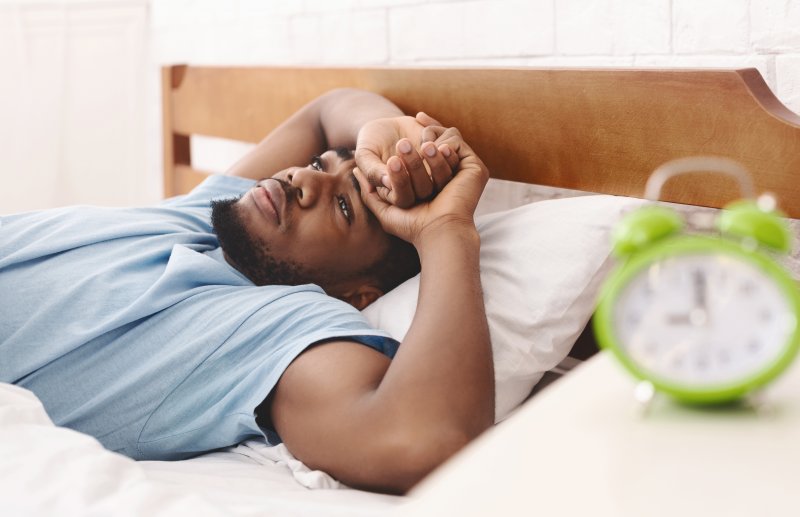The Link Between Sleep Deprivation and Unwanted Thoughts
September 7, 2021

If you have sleep apnea, then you know first-hand how this disorder can affect your quality of life. Most people wake up feeling exhausted each and every morning, making it difficult to focus throughout the day. This sleep deprivation is common among patients with sleep apnea. Although it may feel like a mere nuisance, one study revealed that it plays a role in having unwanted thoughts. Continue reading to learn more about this connection and why you should seek treatment as soon as possible.
What Is Sleep Apnea?
Sleep apnea is a serious sleep disorder in which breathing repeatedly stops and starts. It affects about 25 million Americans every night, making them feel exhausted every day. Most patients experience symptoms like loud snoring, gasping for air while sleeping, awakening with a dry mouth, excessive daytime sleepiness, irritability, and difficulty paying attention while awake. Thankfully, a sleep dentist can confirm a diagnosis offer treatment to help you get a good night’s sleep.
The Role of Sleep Deprivation in Unwanted Thoughts
Because of their disorder, patients with sleep apnea have a difficult time getting restful sleep. As a result, they often experience sleep deprivation – and this can affect your life in more ways than you might think.
The Study
A recent study from the University of York decided to test the ability of participants to suppress intrusive thoughts when they were either sleep deprived or well-rested. Sixty healthy participants were shown faces with photographs of emotionally negative scenes (like a picture of a war zone) or neutral scenes (like a picture of a cityscape). After a night of sleep or total sleep deprivation, the participants were shown the faces again and asked to try and suppress thoughts related to the scene.
Findings
In comparison to the sleep group, the sleep-deprived participants had much more difficulty keeping unwanted thoughts from their minds. The rested participants were successful at suppressing such thoughts, causing them to view negative scenes with more positivity after the suppression task. Overall, sleep-deprived participants experienced an increase in unwanted thoughts of nearly 50% compared to those who were well-rested. The results of this study suggest that lack of sleep can significantly impair one’s ability to stop unwanted thoughts from entering their mind, especially those who already have mental health problems.
Why You Should Seek Treatment
Seeking treatment for sleep apnea can help you get much-needed rest at night and improve your overall health. Not only can it lower your risk of medical conditions (like stroke, diabetes, cancer), but it can also help you suppress unwanted thoughts. If you suffer from psychiatric conditions like post-traumatic stress disorder, depression, or schizophrenia, then having these intrusive thoughts can be even more dangerous for your mental health.
If you have sleep apnea, make sure you seek treatment right away. It’ll help prevent sleep deprivation and keep those unwanted thoughts out of your mind!
Meet the Dentists
Dr. David Crescenzo and Dr. Joe Montalbano share a passion for providing exceptional, state-of-the-art, compassionate dental care to all their patients. They combine their unique skill sets and work in tandem to help you obtain your most beautiful and healthy smile. If you have any questions about sleep apnea and its effects, you can reach Dr. Crescenzo and Dr. Montalbano via our website or call (609) 561-0058.
